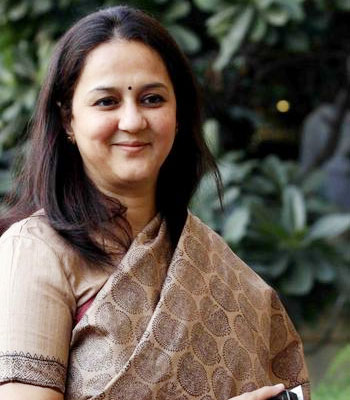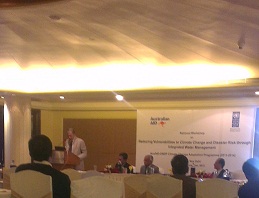/regions/india
India
The issue of food security in India - Case of sodic land reclamation in Uttar Pradesh to preserve the health and productivity of land resources
Posted on 22 Dec, 2012 12:14 PMThe issues surrounding the food security bill, which proposes to confer double benefits-procurement at a remunerative price for the public distribution system are dealt with. This is followed by a discussion on the contribution of usar (sodic land) development to food security in the state of Uttar Pradesh.
India's sanitation spot: Moving towards non-water based solutions in the future requires careful planning
Posted on 20 Dec, 2012 11:43 AM
Philippe Cullet
Seeking Sanctuary: a TEDxASB talk by Bittu Sahgal, editor of Sanctuary Asia
Posted on 20 Dec, 2012 09:20 AMClimate change adaptation in water management for food security - A consultation meeting by India Water Partnership
Posted on 19 Dec, 2012 09:20 AMThe meeting held on 22nd November, 2012 at the Institute for Human Development, New Delhi was followed by a discussion which included comments and suggestions of the experts and participants. The meeting was chaired by Prof. S R Hashim, President, India Water Partnership who was accompanied by Dr.
Making the connector the water connection: a TEDx talk on m.paani by Akanksha Hazari
Posted on 18 Dec, 2012 06:21 PMMoney as a means to an end: a TEDx Connaught Place talk by Ishita Khanna on Ecosphere's work in Spiti
Posted on 16 Dec, 2012 06:42 PMThe talk begins with a description of the valley. This section describes its location, landscape, flora, livelihoods and society.
A brief note on emerging water challenges in India
Posted on 13 Dec, 2012 09:33 PMThe contemporary Indian social, demographic context is witnessing steady rise in demand over water resources and experiencing crunch in its access and availability, clubbed with livelihoods challenges never before. On the contrary, meager policy instruments, inadequate institutional capacities and lack of machinery in place to address or ensure sustainability of its resources.
Video: ‘Water futures - It’s everyone’s business’: A talk by Rohini Nilekani
Posted on 13 Dec, 2012 08:40 PM
Guidelines for preparation of detailed project report for rural piped water supply schemes- A document by Ministry of Drinking Water and Sanitation (2012)
Posted on 12 Dec, 2012 10:19 PMThis document by Ministry of Drinking Water and Sanitation provides essential components that should form part of detailed project report in village/multi village’s rural piped water supply scheme.
The main components of the guidelines include
